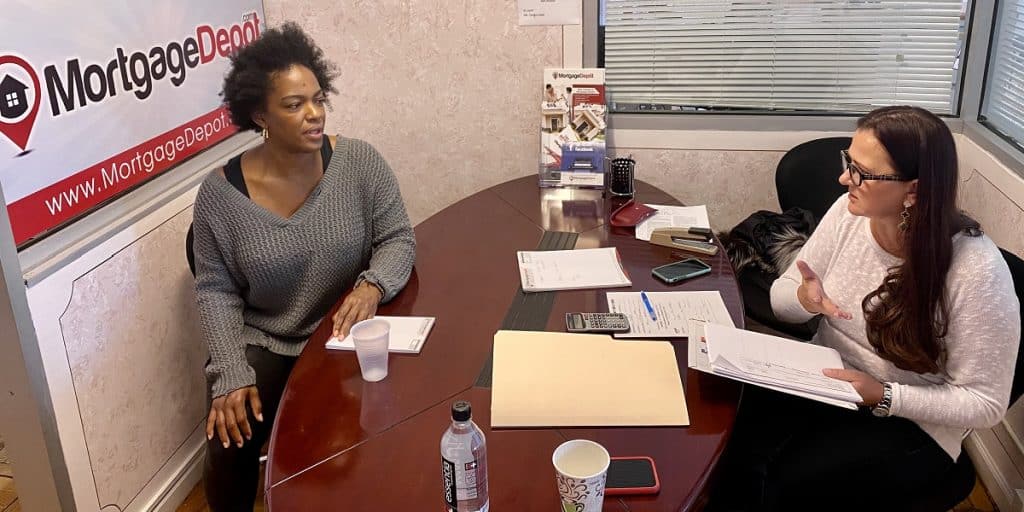
Sometimes exiting a client relationship is the right thing to do.
Think about the referral clients with whom you are now working. Perhaps you are calling on a few real estate agents, builders, CPAs, financial planners, attorneys, and affinity partners. Are all of those relationships positive and profitable for you? Probably not. If you are like many mortgage loan originators, you are spending some of your time with people that send you little or no business, tax your sanity, and waste your time. Oddly enough, you continue to contact them and return their phone calls. Why?
It’s tough to exit a client relationship, even if it is non-productive. You survive on the hope that maybe things will improve, or perhaps the client will change their ways, or you have a fear of not wanting to alienate anyone. So you go back again and again, all the while wasting your precious time and energy. The result? Your business suffers, your loan referrals are few, and you have little or no time to pursue other quality, profitable relationships that can help you achieve your goals. If that sounds familiar, now is the time for you to step forward and make a change for the better.
When is it time to exit a relationship?
There are five primary scenarios when it is necessary for a mortgage originator to exit a referral client relationship:
- The client sends you little or no business. This type of client is either referring his mortgage leads to someone else or has no mortgage leads to refer you. Your sales calls and marketing efforts are falling on deaf ears. You have spent many weeks or months putting your best effort forward and have gained nothing.
- The client sends you extremely poor quality leads that never or almost never close. Her leads include hard money loans, horrific credit problems, unusual circumstances, and other challenging borrowers. Every loan you look at takes enormous amounts of time and costs you and your office staff a great deal of research and effort with little or no return on investment.
- The client is a “time sucker.” This type of client is constantly talking with you; asking questions, testing scenarios, telling war stories, discussing politics, the weather, and pontificating about the economy, market conditions, and on and on. Although you may receive a few leads and loans from this client now and then, he drains your sanity as well as your time with his ranting and incessant phone calls throughout the month.
- The client is overly-demanding. She thinks you work for her and presents you with unreasonable expectations and last-minute emergencies. You may get some leads, but those leads are typically rush deals and nightmare closings. She tells you where to be and what to do. Every loan is filled with unnecessary stress, and seldom does she appreciate your extra efforts.
- The client asks you to do something illegal. Perhaps he is requesting kick-backs for his referrals, or wants you to pay for his advertising, or asks you to “overlook” some derogatory information about his client. He claims that other loan officers comply, and to get his business, he insists you’ll have to do the same.
Are any of these five scenarios happening to you right now? If so, the longer you wait to exit the relationship, the more time and money you waste. The time has come for you to break free!
How do you “fire” a customer?
There are three ways to exit a bad referral relationship. The nature of the relationship, the client, and your personal style will dictate which option works best. Here are a few ideas other originators who have been in your situation have used:
- Send a message. Some loan originators choose to break up with their client via a “Dear John” letter. That email or letter might read something like this: Steve, I will not be contacting you further about mortgage referral opportunities. We have been in conversations for nearly three months now and I have yet to receive any leads from you. I do not wish to waste your time and have chosen to pursue other avenues of business. I wish you success and the best of luck in your career. This action ends the relationship on a more formal level and lets the client know where you stand. If you are uncomfortable with this, go back to idea #1. If your style is more personal, then you may want to consider this next step.
- Confront the client. Sometimes a face-to-face meeting is the best solution. It takes courage to consider this step, but remember that this is your business and you are in control of who you work with. In confronting your client, let her know how you feel and why you have made a decision to discontinue the relationship. For example: Karen, I want to thank you for the mortgage leads you have sent me so far this year. That shows a lot of faith and trust in me. However, your clientele is a challenging one, and I have had little success in helping them. This has been very time consuming and costly for my team, and frustrating for both of us. Since I will be unable to help you moving forward, I’d like to suggest you find another lender who is an expert in working with these unique situations. If I come across anyone, I’ll be sure and give you his or her name. Few of us like this type of confrontation, but in some cases it is the best way to move forward.
- Disappear. Immediately stop all contact with the client. Make no more sales visits, take the client off of your mail, email, and fax distribution lists, and do not return any of his calls. Forget about what he might think. You are through. Make a clean break…fast. For many originators in a bad relationship, this is the preferred option. However, if you think that is a bit cowardly, you can try the previously listed methods.
Why would you want to do this?
The better question is: Why would you not want to do this? Those who come up with answers to that question are usually disguising their own discomfort about breaking up with a client with excuses. They are more afraid of what the client might think or say than they are about failure. (Strange but true!) Rather than take action or face the client, they choose to continue to waste time, money, and energy on dead end relationships. Does that sound like a smart idea? Certainly not.
Breaking free from a bad client relationship means you’ll have more time for the more important and profitable things you have been wanting to do like:
- Targeting new, high potential customers
- Creating a FSBO marketing campaign
- Delivering homebuyer seminars
- Following up on leads and borrower opportunities
- Mining your database of past clients for referrals
- Attending client, community, and industry functions
- Expanding your knowledge base and selling skills
Time is the most valuable commodity you have at your disposal every day. Each minute you spend with a low-payoff client is one more minute you could have spent with a high-payoff client. It is time to exit those relationships that are holding you back from becoming the successful originator you want to be!
By Douglas Smith
Have questions or need help?
Call us now at 800-220-LOAN
Request a call back or email us your questions!







